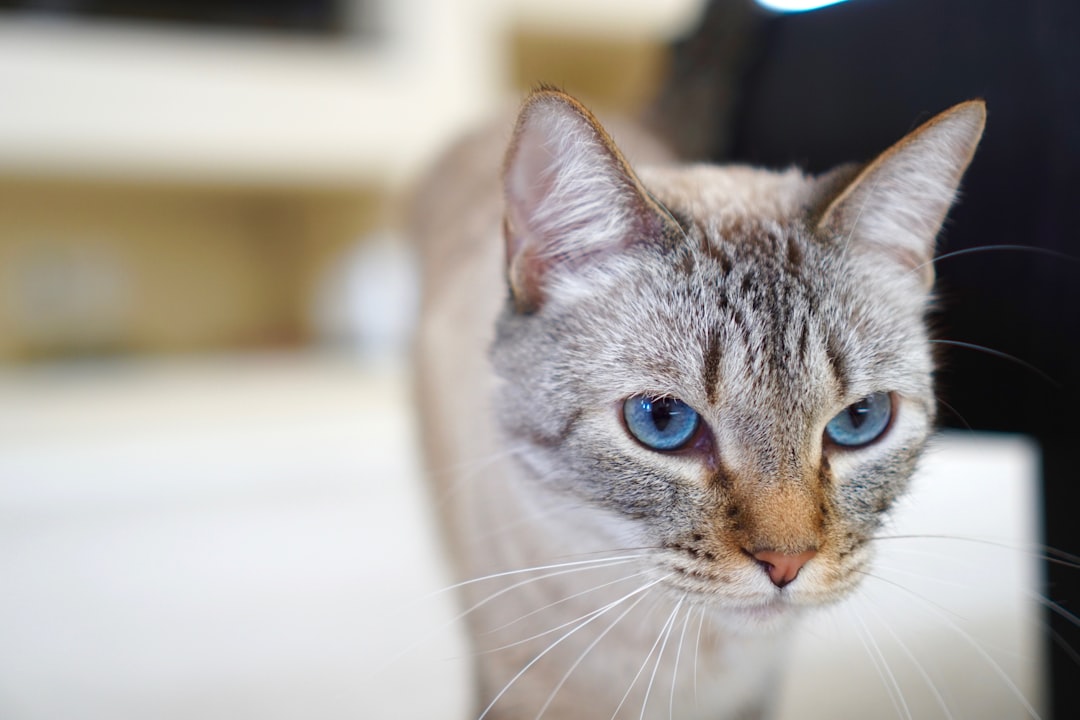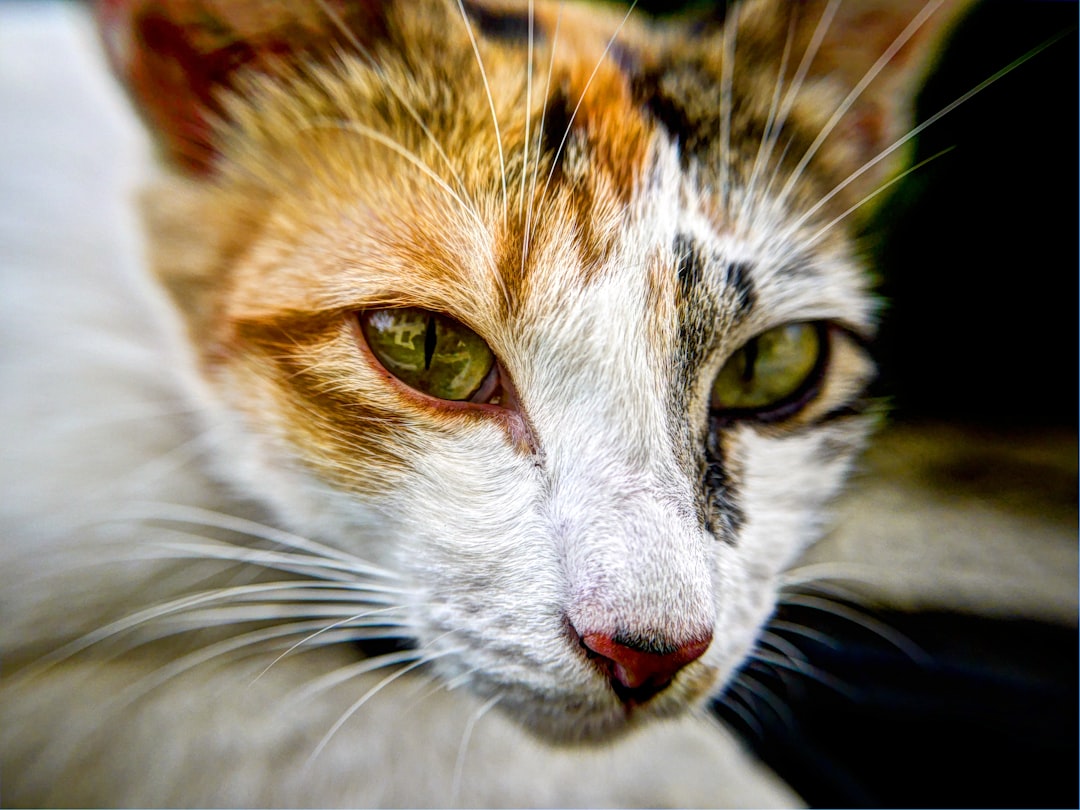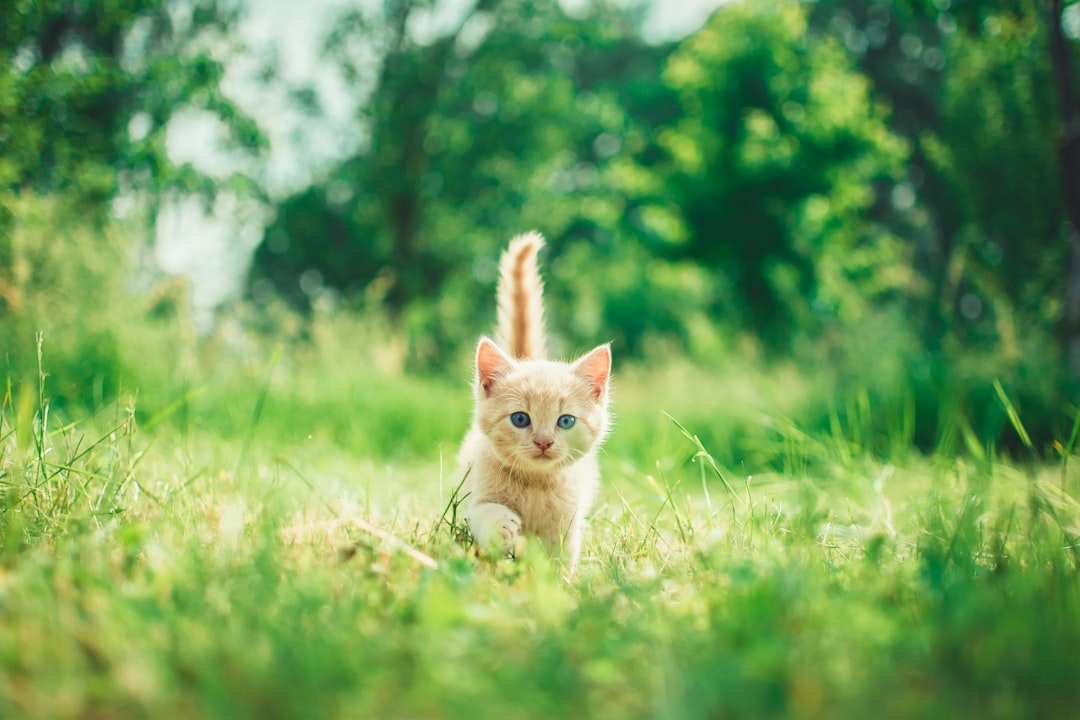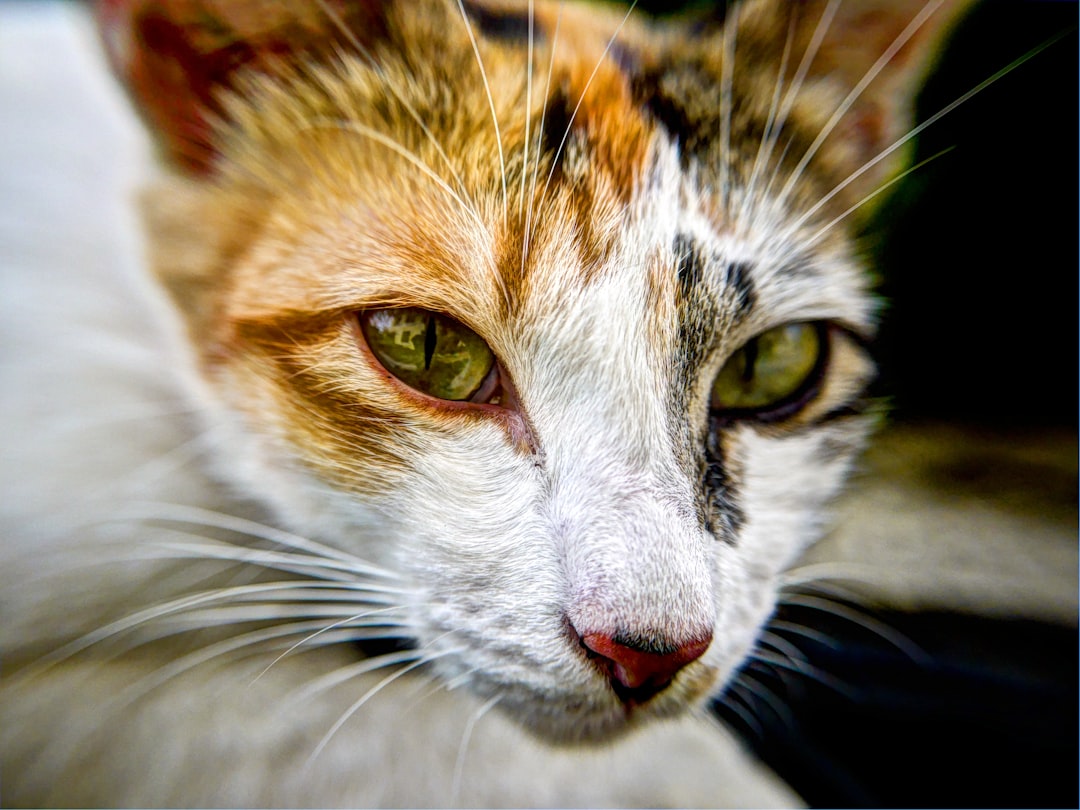When it comes to our feline friends, their diet often raises more questions than a cat has lives. A common query is, can cats eat cherries? While those juicy red fruits may be delightful for humans, our whiskered companions have their unique nutritional needs. In this whimsical exploration, we’ll uncover which fruits are safe and which could send your kitty running for cover. So, let’s dive into the fruity world of feline diets and ensure your cat’s snack time is both tasty and safe!
Are Cherries Safe for Cats?

So, can cats eat cherries? As tempting as a sun-kissed cherry may look, the answer isn’t as sweet as you’d hope! While some fruits add a burst of excitement to your kitty’s diet, cherries are not on the “feline-friendly” list.
Here’s why cherries make your cats frown instead of purr:
- Toxic Components: Cherry pits, stems, and leaves contain cyanide, which is toxic to cats.
- Digestive Drama: The high sugar content can wreak havoc on a cat’s sensitive stomach, leading to an upset tummy or worse.
| Fruit | Safe for Cats? | Toxic Components |
|---|---|---|
| Cherries | No | Pits, stems, leaves |
| Blueberries | Yes | None |
| Strawberries | Yes | None |
In summary, while your furry friend might enjoy the sight of cherries, it’s really best to keep these fruits away from their bowl. So, back to the question—can cats eat cherries? No, and for good reason! Better to explore safer options for those curious paws and whiskers.
Common Safe Fruits for Cats

When it comes to treating your feline friend, not all fruits are created equal. So, let’s shine a light on some delightful options that keep your kitty happy—and safe! You might be asking yourself, can cats eat cherries? But let’s explore other fruits that are safe first:
- Blueberries: Juicy and bursting with antioxidants, these little gems can be a fun snack to toss your cat’s way.
- Watermelon: Hydrating and refreshing, leave out the seeds! Your kitty might appreciate a summer treat.
- Bananas: They pack a potassium punch; however, moderation is key. Cats may not be able to resist the squishy texture!
- Strawberries: High in vitamin C, these are not just for humans. Just chop them up for easier munching.
Now, back to the burning question: can cats eat cherries? The answer is a firm no! While some fruits bring joy to our whiskered pals, cherries pose serious risks. Stick to the fruit list above to ensure your cat’s snack time is both tasty and safe.
Common Safe Fruits for Cats

While the question “can cats eat cherries” often sparks concern among pet owners, there are plenty of fruity delights that are perfectly safe for your feline friend! Cats might not have a penchant for sweets like humans do, but they can occasionally enjoy some fruits. Here’s a handy list of fruits that are safe for them:
- Blueberries: Rich in antioxidants and fiber, these bite-sized morsels are a win!
- Melon (Cantaloupe and Watermelon): Cats often enjoy the juicy sweetness and freshness.
- Bananas: In moderation, bananas can be a fun treat due to their potassium content.
- Strawberries: Packed with vitamins, a small slice won’t hurt your kitty.
A Quick Comparison
| Fruit | Nutritional Benefits | Safe Amount |
|---|---|---|
| Blueberries | Antioxidants | 2-3 berries |
| Melon | Hydrating, vitamins | Few small pieces |
| Banana | Potassium, fiber | 1 small piece |
| Strawberries | Vitamins, good for skin | 1 slice |
Remember, when it comes to your kitty’s diet, moderation is key! So, while the question “can cats eat cherries” lingers, feel free to offer these tasty, safe alternatives instead.
Risks of Feeding Cats Certain Fruits
When it comes to our feline friends, a curious nose can lead them to some rather questionable snack choices. So, let’s dive into the risks surrounding fruits—specifically, can cats eat cherries? Spoiler alert: it’s probably best to steer clear.
Here are some important factors to consider:
- Toxic Ingredients: Many fruits have seeds or pits that can be harmful to cats. Cherries are no exception! The pits can block their intestines or even contain cyanide, which isn’t exactly cat-friendly.
- Digestive Issues: Cats lack the enzymes needed to digest fruits effectively. Even a small nibble of cherries could lead to tummy troubles like diarrhea or vomiting.
- Sugar Content: Cats don’t need sugary snacks; their diet thrives on protein. Fruits like cherries contain high sugar levels, which can jeopardize their health over time.
So, before you hand over that cherry, remember: while some fruits are safe, cherries certainly fall into the hazardous category. Prioritizing their health means keeping those fruits off their menu. Instead, let’s explore safe alternatives!
Are Cherries Safe for Cats?
Ah, cherries – those delicious, plump little fruits that often make a cameo in our desserts and cocktails. But before you toss some cherries to your furry friend, you might want to pump the brakes. So, can cats eat cherries? Sadly, the answer is a resounding NO.
Here’s why cherries can be a real no-show in a cat’s diet:
- Toxicity Risks: The pits and stems contain cyanogenic compounds, which are toxic if ingested.
- Digestive Upset: Even the fleshy part can lead to tummy troubles for your kitty, including vomiting or diarrhea.
- Not a Natural Choice: Cats are obligate carnivores – their taste buds prefer meat over fruit any day!
Quick Comparison Table: Cherries vs. Cat-Friendly Fruits
| Fruit | Safe for Cats? | Toxic Parts |
|---|---|---|
| Cherries | No | Pits, stems |
| Bananas | Yes | None |
| Blueberries | Yes | None |
| Melons | Yes | Seeds (if not removed) |
So, next time you ponder, can cats eat cherries? Just remember this sweet fruit isn’t the treat for your feline friend! Opt for safe alternatives like blueberries or bananas, and keep the cherries for your pancake toppings instead!
Signs of Cherry Toxicity in Cats
So, you’ve spotted those luscious cherries at the market and wondered, can cats eat cherries? Well, before offering them to your furry friend, it’s crucial to be aware of potential signs of cherry toxicity. Unfortunately, cats and cherries don’t mix well. Here’s what to keep an eye out for:
- Vomiting: If your kitty decides to sample cherries, vomiting might be the first sign that something’s amiss.
- Diarrhea: A sudden upset tummy can lead to unexpected bathroom visits.
- Lethargy: Is your usually playful cat taking an unexpected catnap? A lack of energy can indicate something’s not right.
- Abdominal Pain: If you notice your cat being less playful and sensitive around the belly, it might be time to consult the vet.
In summary, moderation is key. If you find yourself pondering, can cats eat cherries?, resist the urge to share. Instead, choose safer fruits like blueberries or bananas. Your feline friend will appreciate the treat—and you’ll avoid a potential trip to the vet!
Alternatives to Cherries for Feline Treats
If you’re looking for fruity delights that won’t leave your cat feeling cherry dropping, there are plenty of alternatives to explore! While pondering the question “can cats eat cherries,” keep in mind that many fruits are not only safe but can also pack a punch of flavor. Here’s a juicy list of feline-friendly options:
- Blueberries: These little powerhouses are rich in antioxidants and quite the paw-some snack!
- Watermelon: Perfect for hydration, just make sure to remove the seeds and rind.
- Bananas: A fun, potassium-rich treat, but moderation is key!
- Cantaloupe: Most cats love this sweet melon, and it’s packed with vitamins.
Quick Comparison Table
| Fruit | Safe for Cats | Notes |
|---|---|---|
| Cherries | ✗ | Toxic if ingested |
| Blueberries | ✓ | Great source of antioxidants |
| Watermelon | ✓ | Refreshing, just seedless |
| Bananas | ✓ | Best in small amounts |
| Cantaloupe | ✓ | A sweet hit with most cats |
So, the next time you wonder, “can cats eat cherries?” remember there are plenty of delicious and safe options to keep your feline friend purring with happiness!
Alternatives to Cherries for Feline Treats
While pondering the question, can cats eat cherries?, it’s best to explore other scrumptious options that are both safe and tasty for your feline friend. After all, variety is the spice of life!
Here are some purrr-fect alternatives to cherries:
- Blueberries: Packed with antioxidants, these little gems can become a delightful snack. Just toss a few whole ones to your cat—no chopping necessary!
- Watermelon: Refreshing and hydrating, watermelon can be a hit with cats! Remember to remove the seeds and rind for safety.
- Strawberries: These are a great natural treat, but moderation is crucial. Cut them into small pieces to avoid choking.
- Pumpkin: Surprise! This isn’t just for pies. Plain canned pumpkin (not spiced) can aid digestion and provide fiber.
Comparison Table of Safe Fruits for Cats
| Fruit | Safe to Eat | Suggested Serving Method |
|---|---|---|
| Cherries | ❌ | N/A |
| Blueberries | ✔️ | Whole |
| Watermelon | ✔️ | Seedless, rindless pieces |
| Strawberries | ✔️ | Chopped |
| Pumpkin | ✔️ | Plain canned |
So the next time you’re in the kitchen and thinking, can cats eat cherries?, remember these delightful alternatives! Your feline will thank you with grateful purrs!
Frequently Asked Questions
Can cats safely eat cherries?
Ah, the mysterious cherry! While they might work wonders in a pie, they’re not exactly feline-friendly. Cats should avoid cherries as they contain cyanogenic compounds, which can be toxic to them. If your cat decides to give it a curious sniff or a nibble, don’t panic; a tiny morsel might not be disastrous, but better safe than sorry! Stick to cat-friendly treats and keep those cherries for your summer smoothies!
What fruits are safe for my feline friend?
When it comes to safe snacks, think melon, blueberries, and bananas! These fruits won’t cause a kitty catastrophe. Melons like watermelon and cantaloupe are particularly hydrating and packed with nutrients. Just cut them into small, manageable pieces—because let’s face it, flinging a whole watermelon over to Mr. Whiskers is a recipe for disaster! Always introduce new foods slowly, and watch for any quirky preferences.
What symptoms should I watch for if my cat eats cherries?
If your feline friend decides to test their taste buds on cherries, keep an eye out for symptoms of distress. Drooling, lethargy, or an upset tummy could suggest trouble in paradise. Some cats can show signs of distress through vomiting or changes in appetite, which are NOT typical feline antics. If you notice any of these symptoms after a cherry escapade, do consult your vet and put those cherries in the ‘not for paws’ category!
Are there any fruits that can help with cat hydration?
Absolutely, hydration is key! Juicy fruits like watermelon, cucumbers, and even strawberries can provide both hydration and a treat for your cat. Watermelon, in particular, is like a summer party in a fruit! Just make sure to remove the seeds and rind to avoid an unintentional vet visit. These are not only hydrating, but they also provide a sweet flavor that might just have your kitty doing the happy dance!



